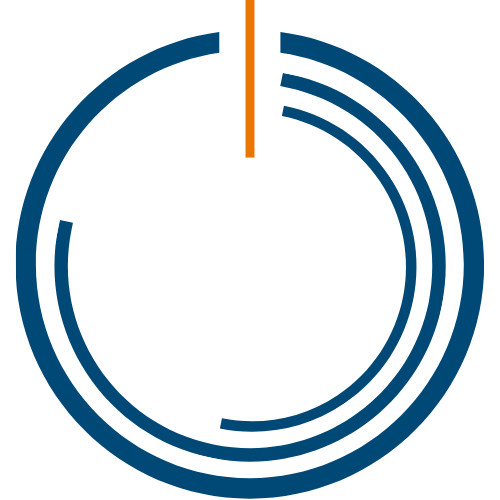If you've ever wondered why so many people rely on caffeine to kickstart their day or stay alert, the answer lies within the fascinating world of brain chemistry. The key players in this story are caffeine and adenosine, two compounds that engage in a delicate dance within our brains, influencing our alertness, energy levels, and even our mood.
The Tale of Adenosine
To understand how caffeine and adenosine interact, we need to start with the role of adenosine in our brains. Adenosine is a natural compound that's generated within our brains. As it's produced, adenosine binds to specific receptors in the brain, known as adenosine receptors. This binding of adenosine to its receptors has a calming effect on nerve cell activity, resulting in drowsiness.
Not only does adenosine slow down nerve cell activity, but it also causes blood vessels in the brain to dilate. This expansion of blood vessels is likely nature's way of ensuring that our brain receives more oxygen during restful periods, such as sleep.
In essence, when adenosine binds to its receptors, it's like a signal to our body to wind down and prepare for a restful phase.
Caffeine Enters the Stage

Now, let's introduce caffeine into the picture. Caffeine, commonly found in coffee, tea, and many other beverages, shares a striking resemblance to adenosine. When you consume caffeine, it enters your bloodstream and eventually reaches your brain, where it finds adenosine receptors.
Here's the twist: Caffeine, once in the brain, binds to the very same adenosine receptors that adenosine would typically occupy. However, caffeine doesn't mimic adenosine's sedative effects. Instead, it acts as a disruptor, preventing adenosine from binding to its receptors and exerting its calming influence.
The result? Nerve cells, relieved from adenosine's calming signal, become more active and alert. In other words, caffeine essentially tells your brain to speed up, counteracting the drowsiness that adenosine would otherwise induce.
In addition to blocking adenosine receptors, caffeine also has a vasoconstrictive effect on the brain's blood vessels. This means it narrows these blood vessels, which is the opposite of what adenosine does by dilating them. The net effect is an enhanced supply of oxygen-rich blood to the brain, further contributing to the feeling of alertness that caffeine provides.
The Adrenaline Rush
The caffeine-induced increase in neuron firing doesn't stop at brain chemistry. This spike in activity sets off a cascade of responses in the body. The pituitary gland, located at the base of the brain, senses the heightened neuron activity and interprets it as an emergency signal.
In response to this perceived emergency, the pituitary gland releases hormones that instruct the adrenal glands to produce adrenaline, also known as epinephrine. Adrenaline is the famed "fight or flight" hormone, and it induces several changes in your body:
- Pupil dilation: This enhances your ability to see clearly in response to potential threats.
- Airway dilation: It opens up your airways, which can be life-saving in cases of severe asthma attacks.
- Increased heart rate: Your heart begins to beat faster to pump more oxygen-rich blood throughout your body.
- Blood vessel constriction: Blood vessels near the surface of your skin constrict, which can slow down blood flow from minor cuts and increase blood flow to muscles.
- Elevated blood pressure: Adrenaline raises your blood pressure, preparing your body for action.
- Reduced blood flow to the stomach: Digestion takes a back seat during emergencies.
- Release of sugar: The liver releases sugar into your bloodstream, providing extra energy.
- Muscle tension: Your muscles tighten, ready for action.
It's no wonder that after enjoying a strong cup of coffee or a caffeine-packed beverage, you often experience colder hands, tenser muscles, increased excitement, and a racing heart – these are all effects of adrenaline released in response to caffeine's influence on brain chemistry.
The Role of Dopamine
Caffeine's impact on brain chemistry doesn't end with its interaction with adenosine. It also affects another crucial neurotransmitter: dopamine. Dopamine is involved in our brain's reward and pleasure systems.
Caffeine can increase dopamine production in the brain, contributing to a sense of well-being and alertness. This dopamine boost is partly why caffeine is so pleasurable for many people, and it's one of the reasons behind caffeine's potential to become addictive when consumed excessively.
When to Consume Caffeine: Understanding the Adenosine Connection
Now that we've uncovered the intricacies of caffeine and adenosine's interplay in the brain, it's essential to consider when to consume caffeine for the maximum benefit.
-
Morning Wake-Up Call: Given caffeine's role in blocking adenosine receptors and promoting alertness, it's no surprise that many people turn to coffee and other caffeinated beverages in the morning. This timing aligns with the body's natural circadian rhythm, which tends to produce higher levels of adenosine when we first wake up. A dose of caffeine can help counteract this morning drowsiness and boost your alertness. But PLEASE. Wait until mid-morning to consume caffeine.
-
Before a Productive Work Session: If you have a task that requires focus and productivity, having a cup of coffee or tea before you start can help enhance your mental clarity. By blocking adenosine's sedative effects, caffeine can help you stay alert and focused during your work or study sessions.
-
During a Midday Slump: Many people experience a drop in energy and alertness during the afternoon, often referred to as the "afternoon slump." Consuming caffeine during this time can provide a much-needed boost to counteract the natural rise in adenosine levels, helping you power through the day.
-
Before Physical Activity: Caffeine is not only a mental pick-me-up but can also offer benefits when it comes to physical performance. Athletes and fitness enthusiasts often consume caffeine before workouts to improve endurance and stamina. The increased neuron firing and adrenaline release can provide an extra edge during your exercise routine. Additionally, caffeine helps the body release stored sugar, providing additional energy to fuel your workout.
Moderation and Timing: The Key to Enjoying Caffeine
Understanding the complex relationship between caffeine and adenosine can help you make the most of your caffeine consumption. Here are some tips to ensure you enjoy the benefits without overdoing it:
-
Moderation is the Key: While caffeine can offer many benefits, including increased alertness and improved performance, excessive consumption can lead to side effects like jitters, increased heart rate, and difficulty sleeping. Aim for a moderate caffeine intake, typically defined as 100-300 milligrams per day for most adults.
-
Consider Your Body's Natural Rhythms: Pay attention to your body's natural circadian rhythm. If you're a "night owl," you might benefit from caffeine later in the day. For early birds, a morning caffeine boost could be more effective.
-
Avoid Caffeine Too Close to Bedtime: Caffeine can stay in your system for hours, so avoid consuming it too close to bedtime. This can interfere with your sleep, as the lingering caffeine may disrupt the natural sleep-inducing effects of adenosine.
-
Stay Hydrated: Caffeine is a diuretic, meaning it can lead to increased urination and potential dehydration. Balance your caffeine intake with plenty of water to stay properly hydrated.
-
Listen to Your Body: Everyone's tolerance to caffeine is different. Pay attention to how your body responds to caffeine and adjust your intake accordingly. If you notice negative effects or difficulty sleeping, consider reducing your caffeine consumption.
-
Taper Down: If you're looking to cut down on caffeine or enjoy a beverage without affecting your sleep, use Optimize by Caffeine Experts. We aim to taper down your caffeine intake at a healthy rate.
In conclusion, the interaction between caffeine and adenosine offers a fascinating insight into the world of brain chemistry. Understanding how these compounds affect our alertness and energy levels can help you make informed choices about when and how to consume caffeine. When used in moderation and with consideration for your body's natural rhythms, caffeine can be a valuable tool for enhancing your cognitive and physical performance, providing that much-needed boost during your day.

